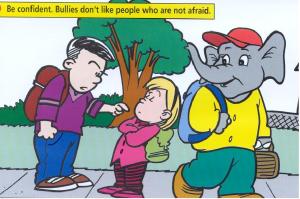Children Are Evil
Okay, bare with me on this one. It’s a thought in progress, but when it occurred to me (in the middle of a lively philosophical discussion at Socrates Café), I had to stop, go get my notepad and jot it down, lest it go the way of most of my thoughts: into oblivion five minutes hence.
 One of the crucial pieces of evidence that morality is learned rather than somehow innate is the fact that parents work tirelessly to educate their children in moral behaviour. “Don’t hit your sister”; “share”; “say you’re sorry” etc etc. The presumption is that if morality was innate, kids wouldn’t be so downright nasty as to need consistent moral guidance.
One of the crucial pieces of evidence that morality is learned rather than somehow innate is the fact that parents work tirelessly to educate their children in moral behaviour. “Don’t hit your sister”; “share”; “say you’re sorry” etc etc. The presumption is that if morality was innate, kids wouldn’t be so downright nasty as to need consistent moral guidance.
However, I do happen to believe that morality is largely innate – not the norms to which we subscribe, but the capacity for moral thinking and the ability to feel moral emotions such as empathy. As such, why would children require so much moral guidance? Here’s why:
Children are evil.
There, I said it. Now, let me elaborate with somewhat less hyperbole.
There are a number of reasons why children don’t have the some moral proclivities as adults. First is they are, themselves, developing cognitively. They lack the highly developed cognitive faculties of adults, such as the ability to visualise detailed potential outcomes of behaviours, thus assessing which are most likely to be in accordance with their long term desires and beliefs etc etc. They also require socialisation in order to ‘prime’ their moral faculty. They might be born with a disgust-aversion button, but they need training to associate that button with certain stimuli.
However, children also have very different selection pressures placed upon them than adults – and this might account for why they are not only not fully morally capable, but also predisposed towards what we might perceive as immoral behaviour. They might even have diminished feelings of empathy for their fellow children.
In our evolutionary past, children were entirely dependent upon adults – usually their parents, but often near relatives and family friends as well. In times where resources are scarce, children must work hard to secure parental attention and resources in competition with siblings (Trivers, 1972), and, by extension, compete for the attention and resources of their tribe with other children.
As a result, children employ a number of strategies to assist in their survival. One of these is to compete viciously for status and power over other children. They band together in coalitions, forming close knit in-groups and vilifying out-groups. They pick on the runts, preventing them from taking resources away from the fittest and strongest kids. And all this requires them to be, at times, ruthless. Sure the little buggers are cute, and they look so innocent, but chuck a few of them in a school yard and watch them have at each other.
Crucially, however, when they grow and become more autonomous and less reliant on parents, then the establishment and management of cooperative ventures becomes more important, thus some of the more uncompromising strategies might fade quite naturally – not requiring any specific socialisation to do so.
Now, I’m not suggesting that a child, left alone, will develop a comprehensive moral sense by adulthood – they still need socialisation. But I’d suggest that a lot of the moral training is really moral intervention – stopping bullying, preventing vilification of out-groups and weaker children, etc – and over time, the amount of intervention diminishes. So it looks like children need more moral education than they probably do.
As such, it’s quite plausible that our moral faculty is largely innate, but that it develops slowly in children because, in many circumstances, it’s proven beneficial for them for it to do so.
Discuss.
0 Comments